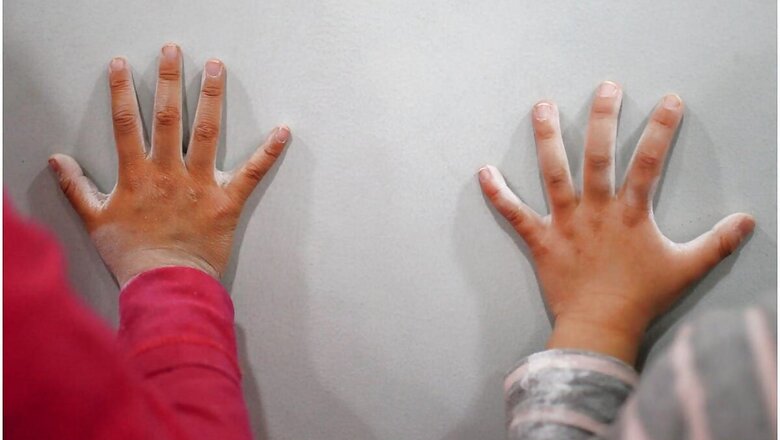
views
The COVID-19 pandemic has hit every family hard. Many families are experiencing a pervasive sense of loss—loss of social networks, loss of job and financial security, loss of a loved one. It is essential for parents to support each other and the child. Writing in the peer-reviewed journal ‘Family Process’, Mark Feinberg of Pennsylvania State University advises that a positive co-parenting relationship is key to ensuring children’s well-being. If parents can support each other in these difficult situations, they will be able to show more patience and provide support to their child.
The ARCH Model
To support and protect psychosocial well-being of children, our team at New Horizons Child Development Centre has proposed the ‘ARCH’ model for mental health workers, parents and teachers. ARCH is an acronym for Adapt and attempt, Resilience, Collaboration and care, and Humour and humility.
In an uncertain and evolving situation like a pandemic, children may be encouraged to adapt to the current scenario and attempt solutions, rather than wait for their familiar comfort zones. Options for physical activities have been drastically reduced. Children tend to spend their excessive free time on television or mobile phone. Introducing positive adaptation skills is essential. Children need to feel safe, secure, and positive about their present and future. Caregivers can help by focusing children’s attention to stories about how people come together, find creative solutions to difficult problems, and overcome adversity during the epidemic.
Since failure may be a likely outcome due to unprecedented challenges, resilience needs to be fostered. This entails ‘listening’ to and being emotionally available for the child. Letting children express their concerns and participating in their activities are key initiatives. Children should be given an idea of what to expect realistically—don’t paint a rosy picture of the situation. Queries from children need to be answered with simple concrete explanations appropriate to their level of cognitive development. Being honest and supporting them during challenges will help build resilience in children.
Collaboration and care are imperative in a prolonged crisis. Children need to be encouraged to reach out to parents, siblings, peers, school mates, teachers, and other caregivers to pool resources and ideas, and work together collaboratively to find creative solutions to everyday challenges under supervision and guidance. Humour in daily life is vital for the child to withstand distress during these hard times, and inculcating humility is imperative to help the child maintain a sense of calm acceptance and balance.
On Children with Special Needs
Children with special needs would need more care, attention and patience during this time. Disruption in their day-to-day life affects them more. Making a daily schedule which incorporates their self-care and hygiene activities (brushing, toilet, bathing, eating, dressing) as well as preferred play and leisure activities will help them adjust to the new normal as well as help the parents organise their own day better.
Involving the child in household chores at developmentally appropriate level is remarkably beneficial—most “therapy activities” can be incorporated, in a natural way. Moreover, appreciation from loved ones and the ability to contribute to the household are excellent reinforcement to learn desired behaviours. Tele-consultation with your child’s developmental paediatrician and team may help, provided there is a defined programme with goals and outcomes. Medication, as advised, may be continued. Help your child connect with family and friends on social media applications (always supervised) for some time every day. Family events like birthdays can be celebrated on video platforms. Avoid letting your child have unsupervised and unrestricted screen time.
How to Break the Bad News
The second wave, unfortunately, has seen many children lose either or both parents. Family members are worried how to share the news with the child. I would advice break the news to the child under the normal course of events as gently as possible. Use age-appropriate cultural explanations. Allow the child (if the child wants) to participate in the last rites.
Do not force or be judgmental about the child’s behaviour or emotions. Allow the child to express grief the way she/he chooses. Some children will be very expressive, some will not. It is important at all times to display affection and be accommodative to the child. Recognise that the child may be very afraid, anxious and feel insecure or guilty. Assure the child of your continued affection and support. Address their feelings of desertion, blame or rejection with your words and actions, again and again. Do not avoid the issue by creating or perpetuating deception by saying things like the departed has gone out of town and will return. For children who do not have family or social support, and are in danger of abuse or neglect, dial 1098 for child support.
Actively seek out support for yourself if you feel stressed, overwhelmed or inordinately sad. There is no shame in looking out for oneself! A healthy and happy parent is essential for a healthy and happy child.
Consult a developmental behavioural paediatrician, child psychologist or child psychiatrist for your child if you find these simple tips do not help or you suspect self-harm at any point in time. It is always better to be safe than sorry.
Like all bad things, the pandemic will end too. For some, there will be irreparable loss; for most, things may slowly start getting better. We are the role models for our child. As a parent, you have to take care of yourself and the child.
This is part two of a two-part series by the author on COVID and children. You can read the first part here.
Read all the Latest News, Breaking News and Coronavirus News here. Follow us on Facebook, Twitter and Telegram.




















Comments
0 comment